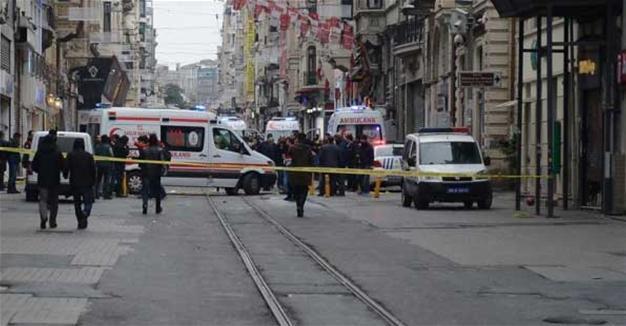ISIL suspect of bomb attack in Istanbul's İstiklal Avenue released due to health condition
ISTANBUL

Erkan Çapkın, an Islamic State of Iraq and the Levant (ISIL) suspect being tried in the case into the deadly March 2016 bombing on Istanbul’s İstiklal Avenue, has been released from custody with a ban on traveling abroad, with the court citing his health problems.
Mehmet Öztürk had blown himself up on İstiklal Avenue off Taksim Square on March 19, 2016, killing four people, including three Israeli citizens, and injuring 44.
Five suspects arrested in connection to the attack appeared in court on March 10, Doğan News Agency reported. Çapkın, who is accused of being a member and leader of a terrorist organization, was released due to his health condition in the first hearing of the case.
The suspects attended the trial via video link, with Çapkın reportedly repeating his first testimony rejecting all charges.
His brother, Ercan Çapkın, also said he has no relation to ISIL or the attack.
“I do not know Mehmet Öztürk who staged the attack. I did not go abroad with legal or illegal ways. I did not use and code name except my real name.”
Aysu Yılmaz, a lawyer for controversial anti-Darwinist Islamic sect leader Adnan Oktar, also attended the trail, claiming that one of the suspects, Hüseyin Kara, was involved in a conspiracy against Oktar.
The court, however, rejected Yılmaz’s demand to participate in the case.
It also ordered the other four suspects in the case to be kept in custody and postponed the trial.
The attack on İstiklal Avenue came six days after a suicide car bomb attack in the heart of the capital Ankara, which killed 37 people.
The attack in Ankara was claimed by the Kurdistan Freedom Hawks (TAK), a terror group linked to the outlawed Kurdistan Workers’ Party (PKK). The group described the car bombing, which occurred on March 13, as a “revenge act” for security operations against the PKK militants in town centers in the southeast that have been underway since July.
 Erkan Çapkın, an Islamic State of Iraq and the Levant (ISIL) suspect being tried in the case into the deadly March 2016 bombing on Istanbul’s İstiklal Avenue, has been released from custody with a ban on traveling abroad, with the court citing his health problems.
Erkan Çapkın, an Islamic State of Iraq and the Levant (ISIL) suspect being tried in the case into the deadly March 2016 bombing on Istanbul’s İstiklal Avenue, has been released from custody with a ban on traveling abroad, with the court citing his health problems.